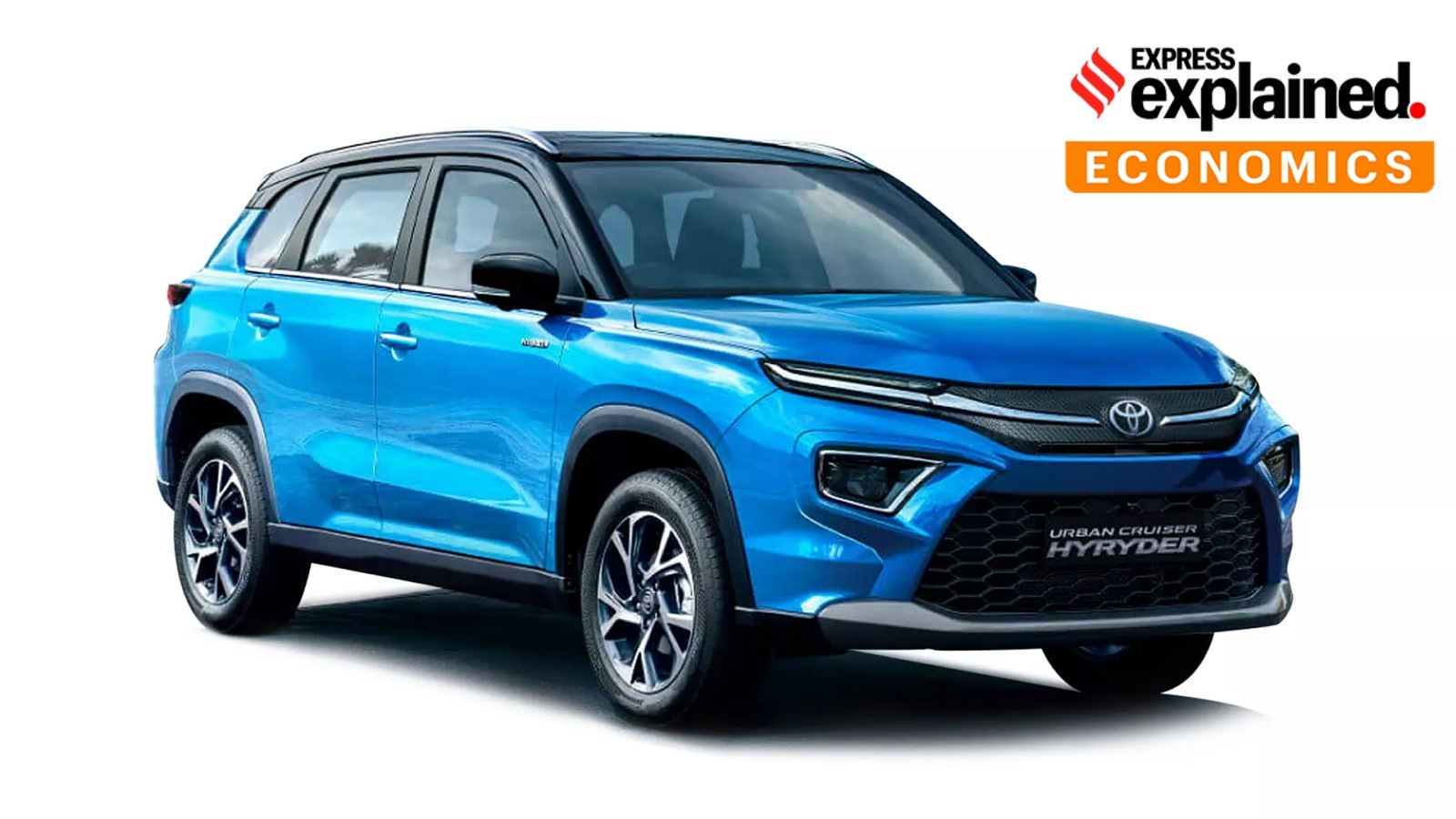The Uttar Pradesh government waived off registration fees for strong hybrid and plug-in hybrid electric vehicles (EVs) on July 5, joining Tamil Nadu and Chandigarh in offering incentives for cleaner alternatives to petrol and diesel vehicles. This move comes as hybrid vehicles gain traction globally by offering improved fuel economy without the range anxiety of full EVs.
Recent sales figures highlight this shift in India’s automotive market. In FY23, strong hybrids made up 0.5 per cent of total sales, which surged to 2.2 per cent in FY24. By comparison, the share of battery EVs grew at a slower pace, from 1.3 per cent to 2.3 per cent of the market, and there are signs of a further slowdown in this category.

The UP government’s decision could encourage more states to introduce similar incentives, potentially accelerating India’s transition to a greener transportation sector.
Waiver to make hybrids cheaper
Hybrid vehicles combine an internal combustion engine (ICE) with an electric motor, working together to power the car. Strong hybrids can switch between running solely on the electric motor, the ICE, or both simultaneously, optimising fuel efficiency.
Unlike full EVs or plug-in hybrids, strong hybrids don’t require external charging. Their batteries are recharged through regenerative braking and by the ICE itself, eliminating dependence on charging infrastructure. This self-charging capability makes strong hybrids particularly attractive in regions where EV charging networks are still developing.
The UP government’s 100 percent waiver on registration fees for strong hybrids could save buyers up to Rs 3.5 lakh. The waiver is likely to boost sales for manufacturers like Maruti Suzuki India, Toyota Kirloskar Motor, and Honda Cars India, all of which offer strong hybrid models. Previously, strong hybrids priced above Rs 10 lakh ex-showroom incurred a 10 percent road tax.
In February last year, the Tamil Nadu government had also announced incentives in the form of road tax, registration, and permit fee exemptions for strong hybrids. The Chandigarh administration also offers road tax rebate on strong hybrid vehicles priced below Rs 20 lakh.
Story continues below this ad
Maruti, Toyota bet on hybrids
Countries everywhere, including India, are pushing toward electrification. In India, Tata Motors, Mahindra & Mahindra and Hyundai Motor have been betting big on EVs. But passenger car market leader Maruti Suzuki has taken a more conservative approach, with no battery EV in the market so far. Maruti has, however, prioritised hybrids in its portfolio in partnership with Toyota Kirloskar.
According to HSBC research, hybrid vehicles are the more practical medium-term solution for the country’s decarbonisation efforts and, more importantly, are less polluting.
“We have a long-standing belief that hybrid and compressed natural gas cars are a practical medium-term (5-10 years) solution for India, while the country moves towards eventual electrification. Hybrids are critical not just from a cost of ownership perspective, but also for India’s decarbonisation drive,” HSBC said in a note issued to investors earlier this year.
The note said that total (well-to-wheel, or WTW) carbon emissions from an EV is currently 158 g/km, compared to 133 g/km for hybrids — which means that a hybrid is at least 16% less polluting than the corresponding EV. These numbers are 176 g/km and 201 g/km for corresponding petrol and diesel vehicles respectively.
Story continues below this ad
Hybrids take the lead globally
The shift towards hybrids is not unique to India. Globally, hybrid sales are surging as full EV adoption slows. In the United States, the average time to sell EVs doubled from 34 days in January, 2023 to 72 days in February, 2024. Meanwhile, hybrid EV sales soared by 53 per cent in 2023, reaching a record 1.2 million units. The trend continued in the first three months of 2024, with hybrid sales jumping 45 per cent year-on-year, while EV sales growth decelerated to just 2.7 per cent.
Europe shows a similar trend. In the first quarter of 2024, hybrid sales grew by 18 per cent year-on-year, significantly outpacing the 3.8 per cent growth in EV sales.








































